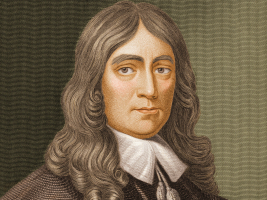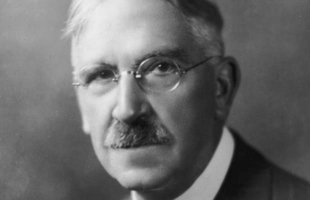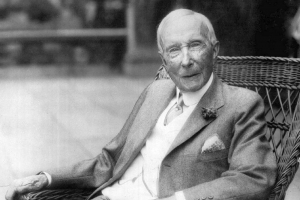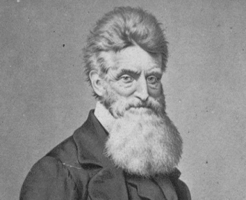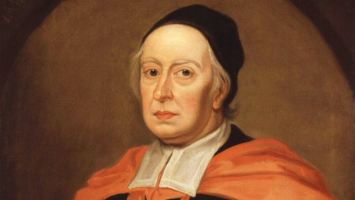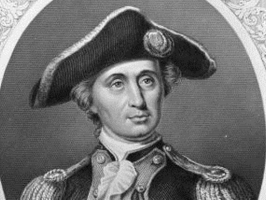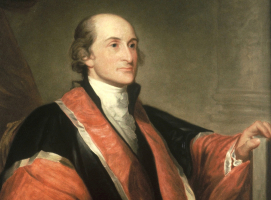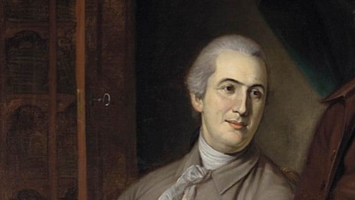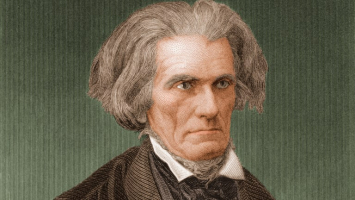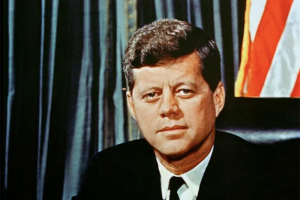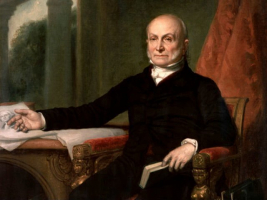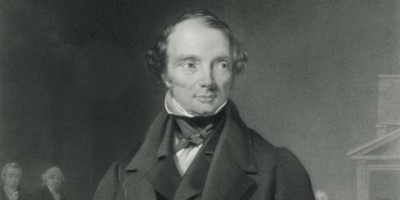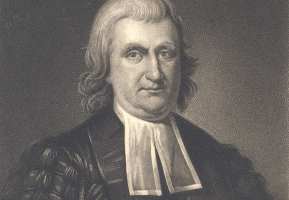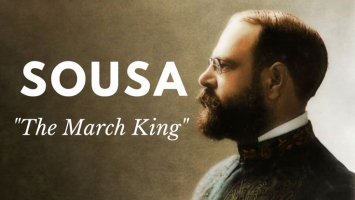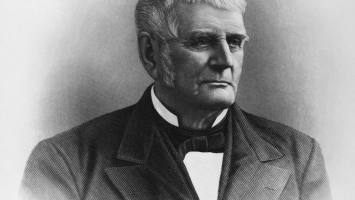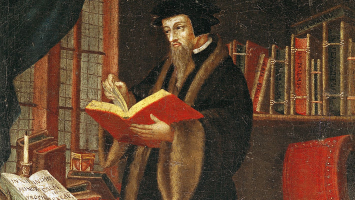Top 5 Interesting Facts about John Locke
John Locke (29 August 1632 – 28 October 1704) was an English philosopher and physician who was largely considered one of the most prominent Enlightenment ... read more...thinkers and was regarded as the Father of Liberalism. Here are the 5 interesting facts about John Locke you should know.
-
One of the interesting facts about John Locke you should know is that he graduated from the University of Oxford. Locke was born on August 29, 1632, in Wrington, Somerset, about 12 miles from Bristol, in a little thatched cottage near the church. Because both of his parents were Puritans, he was baptized on the same day. Locke's father, also known as John, was an attorney who worked as a clerk to the Justices of the Peace at Chew Magna and as a cavalry commander for the Parliamentarian troops during the early stages of the English Civil War. Agnes Keene was his mother's name. Locke was born in the market town of Pensford, some seven miles south of Bristol, where he grew up in a rural Tudor mansion near Belluton.
Locke was sent to the prestigious Westminster School in London in 1647, thanks to the patronage of Alexander Popham, a member of Parliament and previous commander of John Sr. He was admitted to Christ Church, Oxford, in the autumn of 1652, after finishing his studies there. At the time, the dean of the college was John Owen, vice-chancellor of the university. Despite being a bright student, Locke was dissatisfied with the undergraduate program at the time. He regarded modern philosophers' works, such as René Descartes, to be more engaging than the ancient material taught at university. Locke was introduced to medicine and experimental philosophy at other universities and the Royal Society, of which he later became a member, through his Westminster School classmate Richard Lower.
In February 1656, Locke received his bachelor's degree, and in June 1658, he received his master's degree. He earned a bachelor of medicine in February 1675 after studying medicine extensively at Oxford and working with notable scientists and intellectuals such as Robert Boyle, Thomas Willis, and Robert Hooke. In 1666, he met Anthony Ashley Cooper, Lord Ashley, who had traveled to Oxford for treatment of a liver infection. Ashley was impressed with Locke and convinced him to join his retinue.
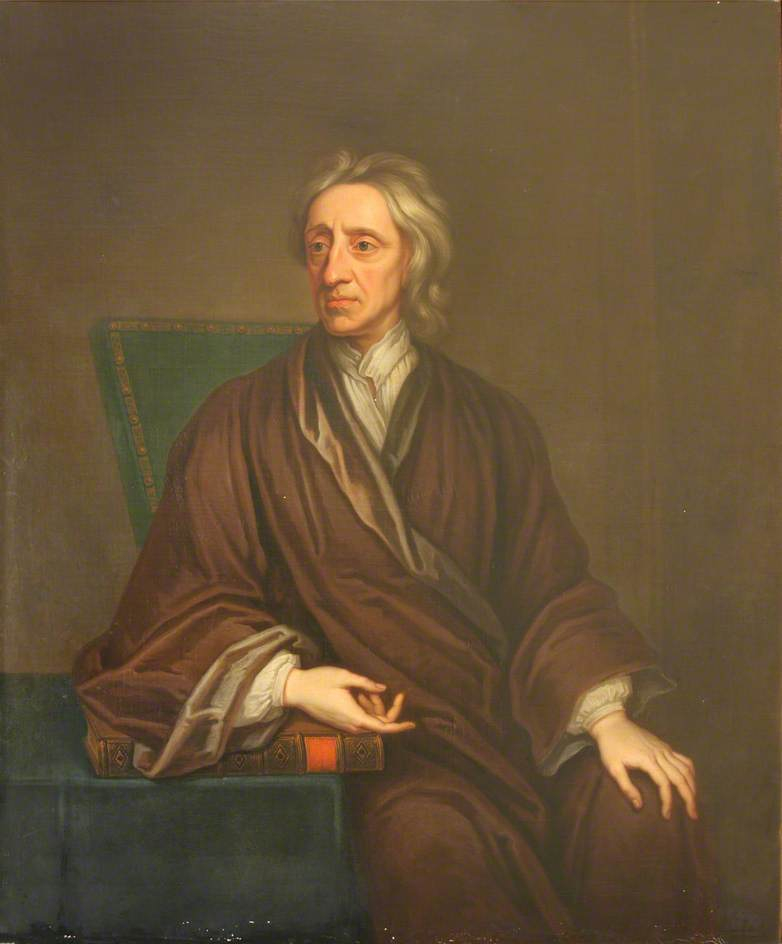
artuk.org 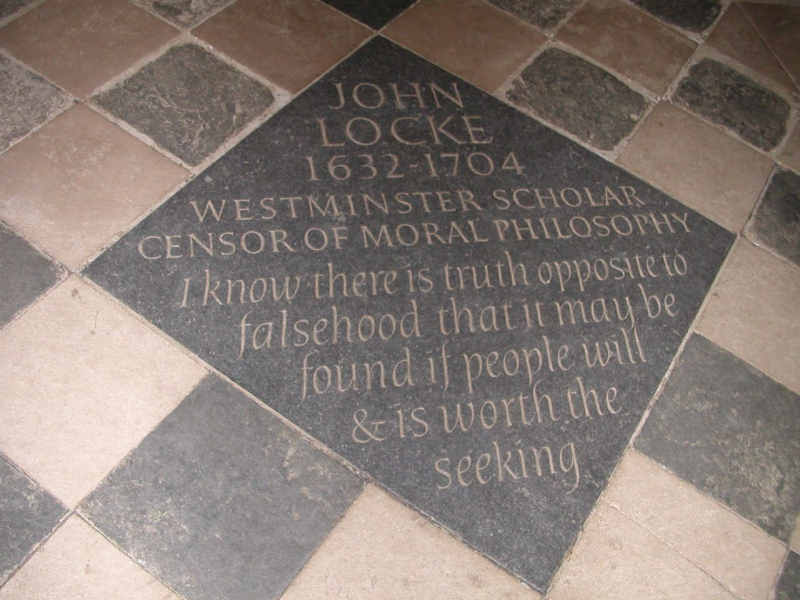
Christ Church, Oxford University -Photo: commons.wikimedia.org -
It is a fact that Lord Ashley and Thomas Sydenham were mentors of John Locke. Locke was looking for work and moved into Ashley's home at Exeter House in London in 1667 to serve as his personal physician. Locke resumed his medical studies in London under the mentorship of Thomas Sydenham. Sydenham had a significant impact on Locke's natural philosophical thought, which was obvious in An Essay Concerning Human Understanding.
When Ashley's liver ailment grew life-threatening, Locke's medical skills were put to the test. Locke undoubtedly had a role in encouraging Ashley to have the cyst removed by coordinating the advice of numerous doctors. Ashley lived to tell the tale, crediting Locke with saving his life.
During this time, Locke held positions as Secretary of the Board of Trade and Plantations and Secretary to the Lords Proprietors of Carolina, which influenced his views on international trade and economics.
Ashley, as a Whig movement founder, had a significant influence on Locke's political theories. When Ashley was appointed Lord Chancellor in 1672, Locke became interested in politics. Following Shaftesbury's demise in 1675, Locke traveled across France as a tutor and medical attendant to Caleb Banks. When Shaftesbury's political circumstances improved briefly, he returned to England in 1679. Locke wrote the majority of the Two Treatises of Government during this time, most likely at the suggestion of Shaftesbury. While it was once assumed that Locke authored the Treatises to defend the Glorious Revolution of 1688, current scholarship has revealed that the work was written far earlier. The work is today regarded as a broader argument against absolute monarchy and in favor of individual consent as the basis of political legitimacy. Despite his association with the influential Whigs, Locke's ideas regarding natural rights and government are now considered highly revolutionary for that period in English history.
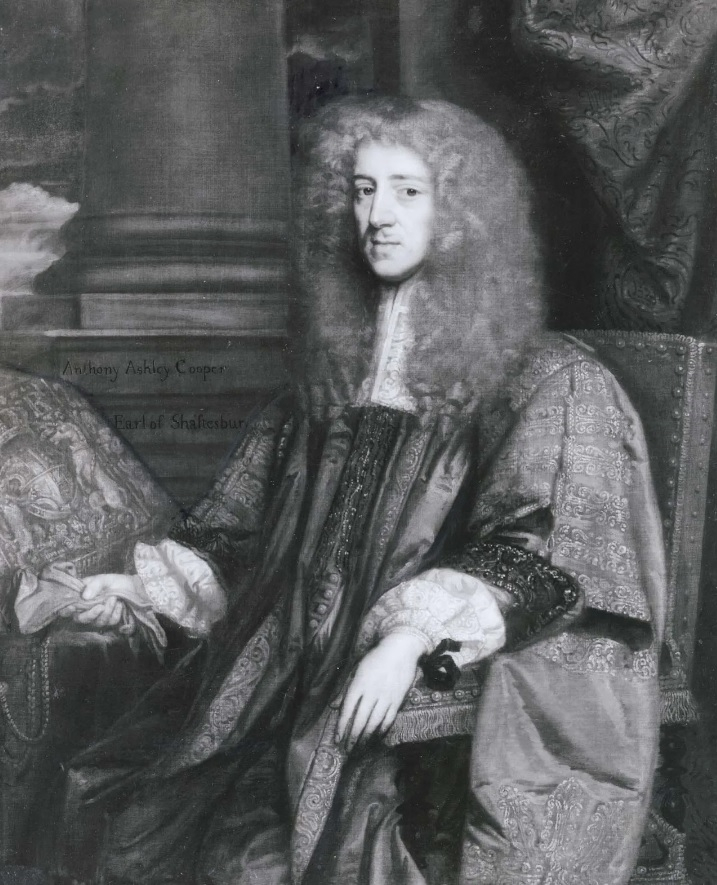
Anthony Ashley Cooper -Photo: britannica.com 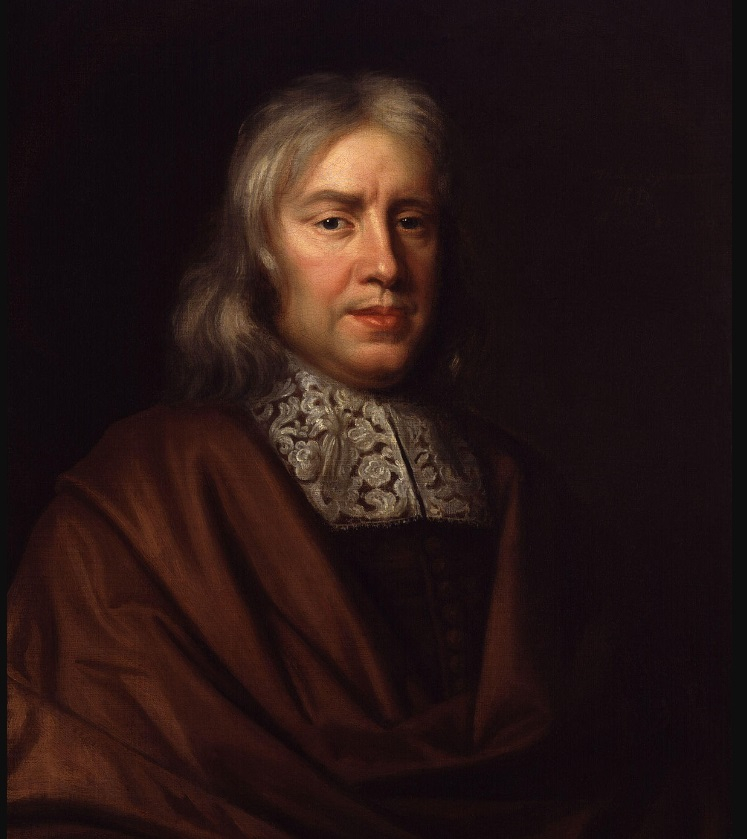
Thomas Sydenham -Photo: en.wikipedia.org -
One of the interesting facts about John Locke you should know is that he fled from England under strong suspicion of involvement in the Rye House Plot. Despite the fact that there is little evidence to support it, Locke went to the Netherlands in 1683 while being heavily suspected of being implicated in the Rye House Plot. The Rye House Plot of 1683 was an attempt to assassinate James, Duke of York, the brother and heir apparent of King Charles II of England. The royal party traveled from Westminster to Newmarket to watch horse races, and they were scheduled to return on 1 April 1683. However, the races were postponed because of a significant fire in Newmarket on March 22 (which destroyed half of the town), so the King and the Duke returned to London earlier than planned. As a result, the intended attack was thwarted.
According to the philosopher and author Rebecca Newberger Goldstein, during Locke's five years in Holland, he made his friends among the same open-minded Protestant dissenters as Spinoza's small circle of devoted confidants. In Amsterdam, Locke probably definitely came into contact with folks who discussed the ideologies of that outlaw Jew who insisted on defining himself only via his religion of reason. She claims that while Locke's strong empiricist tendencies would have prevented him from reading a lofty metaphysical work like Spinoza's Ethics, he was nonetheless incredibly open to the rationalist's ideas, especially his well-reasoned defense of political and religious tolerance and the necessity of the separation of church and state. Locke had time to write again while in the Netherlands, and he spent a lot of time penning the Letter on Toleration and the Essay Concerning Human Understanding.
After the Glorious Revolution, Locke finally made his way back home. In 1688, Locke returned to England with Mary II. Upon his return from exile, Locke published most of his works, including the previously mentioned Essay Concerning Human Understanding, the Two Treatises of Government, and A Letter Concerning Toleration. Lady Masham, a personal friend of Locke's, invited him to visit her at Otes, the Mashams' Essex country estate. He experienced intermittent health due to asthma episodes during that time, yet he nonetheless rose to the status of intellectual hero for the Whigs. He had conversations with people like John Dryden and Isaac Newton during this time.
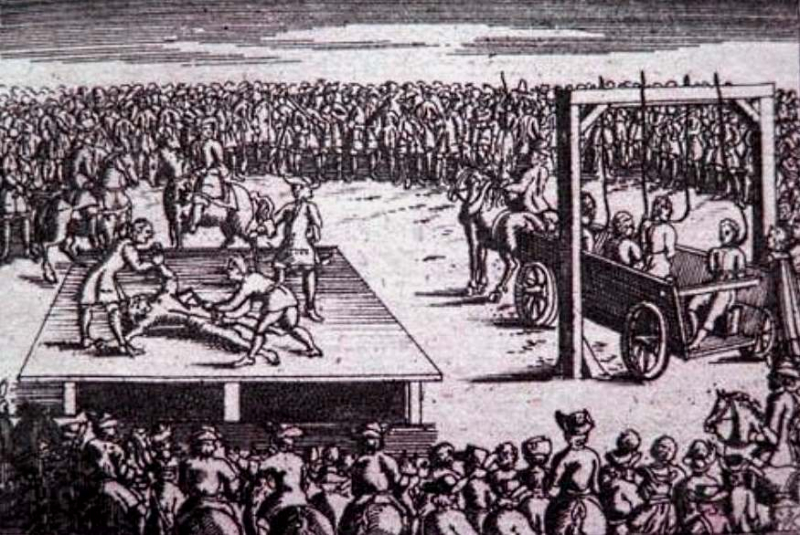
Rye House Plot Execution -Photo: drmarkjardine.wordpress.com 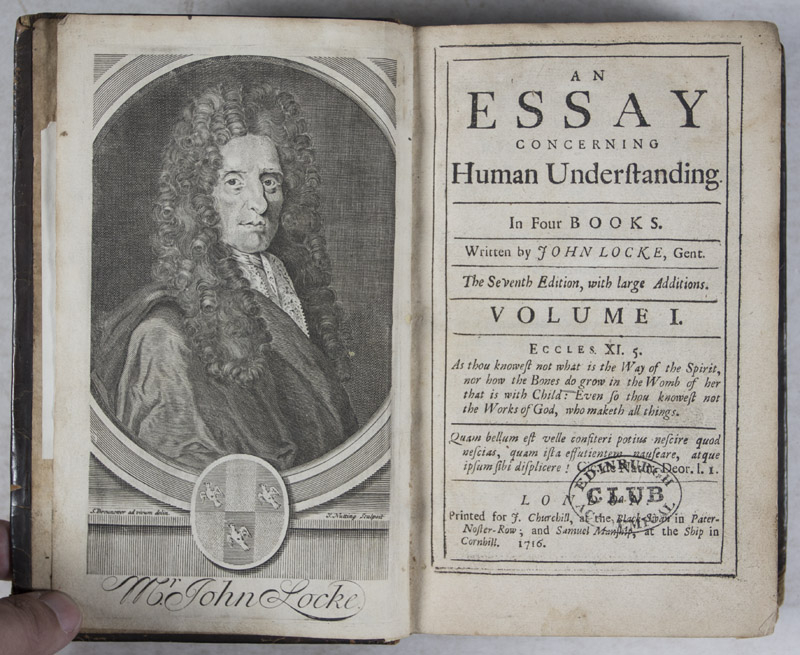
An Essay Concerning Human Understanding -Photo: zvab.com · In stock -
Liberalism is a political and moral ideology founded on individual rights, liberty, the consent of the governed, and equality before the law. Individual rights (including civil and human rights), liberal democracy, secularism, the rule of law, economic and political freedom, freedom of speech, freedom of the press, freedom of religion, private property, and a market economy are all supported by liberals, depending on their understanding of these principles.
On the basis of his beliefs about liberty and equality, John Locke is known as the Father of Liberalism. He is the guy behind the idea that government obtains permission from the governed, and hence authority comes from the people rather than the government. He was not only known as the originator of liberalism but also as a prominent philosopher who not only imparted to his native nation but also substantially influenced 18th century America.
Locke is regarded as the father of classical liberalism, a sort of liberty-focused liberalism that sprang from the Enlightenment and was used to legitimize England's Glorious Revolution, according to DeMichele. Classical liberalism opposed the state-controlled systems of kings and churches that governed Europe after the Roman Empire fell. It is the bedrock upon which all Western philosophies and powers are based. It is, in particular, the groundwork for England's Glorious Revolution, the American Revolution, and France's Revolution. These three revolutions paved the way for religious liberty, modern human rights, free trade, and modern banking to emerge.
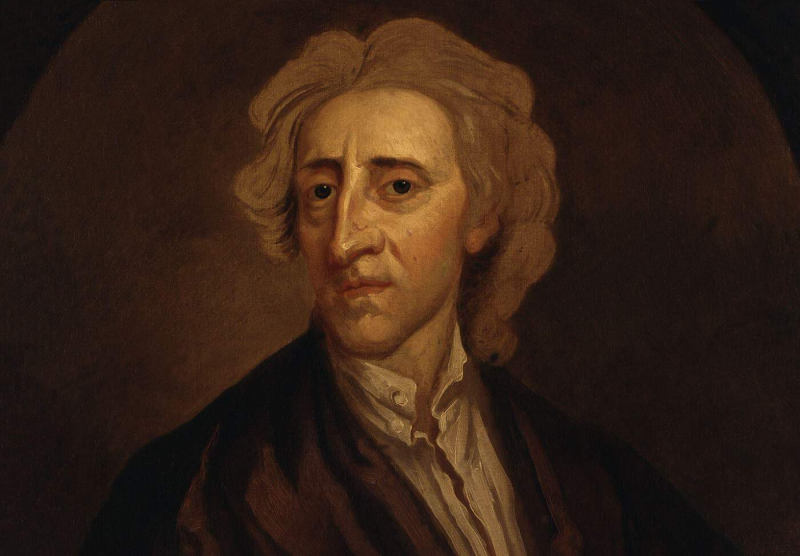
inspirationfeed.com 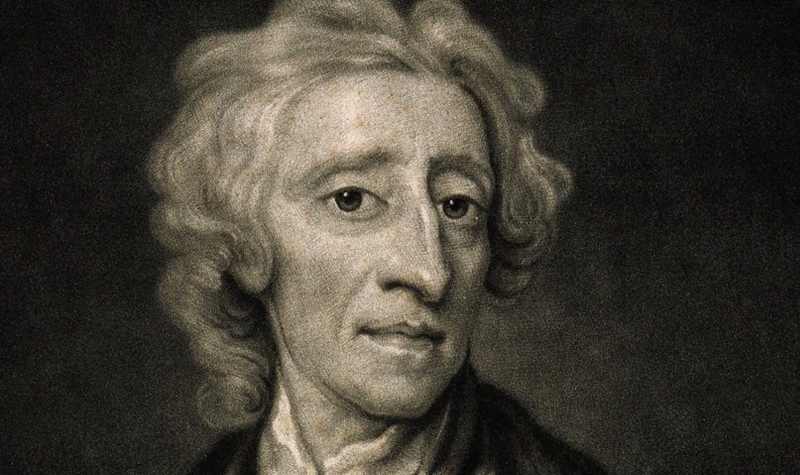
theobjectivestandard.com -
One of the interesting facts about John Locke you should know is that Locke's views on slavery have been characterized as hypocritical. Slavery was a broad and complex issue for Locke. Despite his general opposition to slavery, Locke was an investor and beneficiary of the slave-trading Royal Africa Company. Furthermore, while serving as secretary to the Earl of Shaftesbury, Locke helped draft the Fundamental Constitutions of Carolina, which established a quasi-feudal aristocracy and gave Carolinian planters absolute power over their enslaved chattel property; the constitutions pledged that every freeman of Carolina shall have absolute power and authority over his negro slaves.
According to philosopher Martin Cohen, Locke was one of just half a dozen persons who designed and supervised both the colonies and their iniquitous systems of servitude as secretary to the Council of Trade and Plantations and a member of the Board of Trade. According to American historian James Farr, Locke never articulated any thoughts about his contradictory views on slavery, which he attributes to his personal involvement in the slave trade. Locke's views on slavery have been characterized as hypocritical, setting the groundwork for the Founding Fathers to hold similarly inconsistent views on freedom and slavery. Locke also wrote implementation instructions for the Carolina colonists to guarantee that settlement and development complied with the Fundamental Constitutions. These documents are known collectively as the Grand Model for the Province of Carolina.
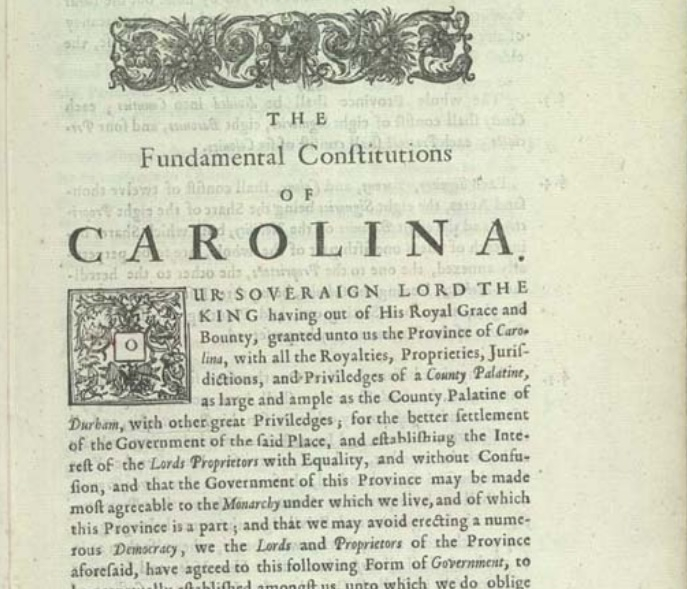
Fundamental Constitutions of Carolina -Photo: en.wikipedia.org 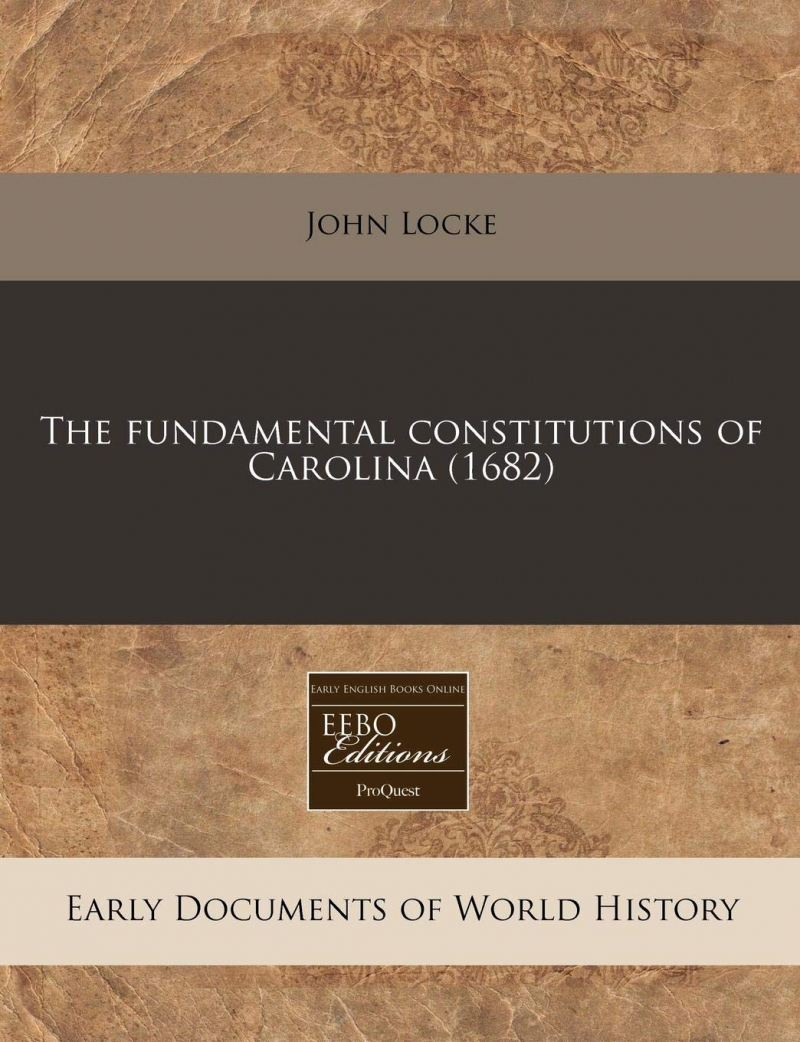
amazon.com








